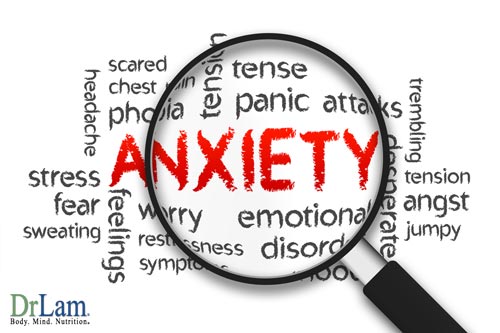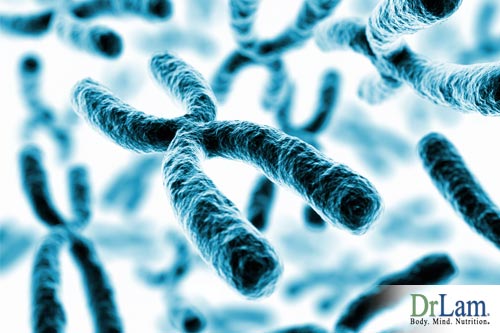 What’s the link between our feelings and cellular aging? Several studies have been conducted across the world to understand the causes of anxiety and also the impacts of it on cellular aging. It had been widely believed that anxiety, almost all types of anxiety, accelerates aging and there were speculations that biological factors do play a role in anxiety. However, not much research evidence was available to ascertain such a correlation or a causal and consequential effect.
What’s the link between our feelings and cellular aging? Several studies have been conducted across the world to understand the causes of anxiety and also the impacts of it on cellular aging. It had been widely believed that anxiety, almost all types of anxiety, accelerates aging and there were speculations that biological factors do play a role in anxiety. However, not much research evidence was available to ascertain such a correlation or a causal and consequential effect.
In a study conducted at Brigham and Women’s Hospital, lead by Olivia Okereke (MD, MS. BWH Department of Psychiatry) establishes that anxiety, shortened telomeres, and accelerated aging are all interlinked.
5,243 women aged between 42 and 69 years were subjected to a study wherein their blood samples were tested to analyze the lengths of telomeres. Telomeres are DNA protein complexes that are present at the tail end of every chromosome in the human body. Telomeres are considered to be the carrier of genetic information from the parent cell to the newly formed cell that is an ongoing cellular process in human anatomy. As the lengths of these telomeres shorten there is a halt in cellular growth and aging commences in adults. Quicker shortening of telomere lengths is a cause of accelerated cellular aging.
From the blood samples obtained of the participants, it could be established that those who suffered from anxiety had shortened telomere lengths. It can be thus illustrated that anxiety can lead to accelerated aging. Anxiety is the root cause of any form of stress. Stress has often been regarded as one of the factors that quickens aging and halts healthy cellular development. The study and findings of the shortened telomere lengths further reiterates the fact that anxiety or stress indeed accelerates aging.
A further analysis of the participants show that women who reported suffering from phobic anxiety and other forms of stress had shorter telomere lengths than those who did not report any experience of significant form of stress or anxiety. While shortening of telomere lengths is common during aging, this correlation with anxiety is a significant development in understanding the psychological and biological aspects of anxiety and how they are interrelated.
Although the result is conclusive, it is uncertain if shortened telomere lengths causes anxiety or it is the other way round. It might be a simultaneous development in the body and the mind, but the eventual consequence is accelerated aging which is incidentally an aftermath of both shortened telomeres and anxiety.
For those suffering with Adrenal Fatigue, there is hope and this condition be reversed. The biggest piece of recovery is to remove any and all stressors. Sources of stress and anxiety not only affect our well-being but – based on this research – can actually affect every cell in our body and determine the speed at which we age.
 Although stress seems to be a familiar part of our culture, AF results from chronic stress to a point that surpasses the body’s ability to fight and recover. Our bodies are designed to battle basic and intermittent stress through the NeuroEndoMetabolic (NEM) Stress ResponseSM system. This system is made up of two separate yet harmonizing systems that are referred to as the neuroendocrine and metabolic components, comprised of organ and systemic units that are all interconnected. When chronic stress occurs, this NEM system can become dysregulated. This manifests in a series of symptoms that can cause a multitude of negative consequences. One piece of this dysregulation in the body is represented by AF through the hormonal response.
Although stress seems to be a familiar part of our culture, AF results from chronic stress to a point that surpasses the body’s ability to fight and recover. Our bodies are designed to battle basic and intermittent stress through the NeuroEndoMetabolic (NEM) Stress ResponseSM system. This system is made up of two separate yet harmonizing systems that are referred to as the neuroendocrine and metabolic components, comprised of organ and systemic units that are all interconnected. When chronic stress occurs, this NEM system can become dysregulated. This manifests in a series of symptoms that can cause a multitude of negative consequences. One piece of this dysregulation in the body is represented by AF through the hormonal response.
This article shows that anxiety is represented in the detoxification response in the NEM system, which is another part of the cascading effect. Excessive stress causes cellular damage and build-up, which is to include telomere length and integrity of cells.
The emerging research with regard to telomeres and anxiety highlights the importance of stressors in our lives. A good night’s rest and a high-quality diet are additional ways to allow our bodies to recover and recuperate. For those with AF, finding a way to deal with our problems is critical to allow adrenal healing and in turn give the body the ability to maintain an optimum stress response for the future. Fighting our feelings of anxiety and stress is paramount to determining the quality of our health and aging.

